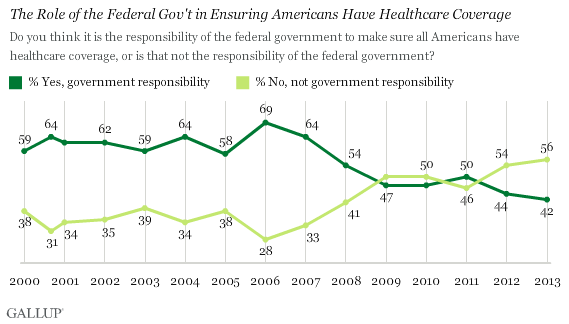Compulsory military service, as old as Athenian democracy and common in countries such as Israel that live under threat, has been in decline in Western Europe since the end of the Cold War. But an exception, Switzerland, is instructive: On Sept. 22, the Swiss voted 73 percent to 27 percent to keep their conscription army. It has less to do with security than with national identity in a land of 26 cantons and four official languages. The government argued that military service teaches people “how to live and work with compatriots from all regions, all linguistic groups and all social strata,” which “contributes enormously to the national cohesion.”
In Switzerland, the sons of bankers and farmers alike do basic training for several months and then are recalled to service for brief periods. But the structure is less important than the service itself. My former colleague Tom Ricks proposes bringing back the draft in the United States but allowing for a civilian national service option — teaching, providing day care and the like — for those who don’t want to join the military.
There’s no mass movement for mandatory service, but the idea has gained a diverse group of supporters, including retired Gen. Stanley McChrystal and Rep. Charlie Rangel (D-N.Y). Gun-rights groups would cheer an armed citizenry, and an article published by the libertarian Cato Institute argued that compulsory service “can be a pillar of freedom.”
The costs would be huge. But so would the benefits: overcoming growing social inequality without redistributing wealth; making future leaders, unlike today’s “chicken hawks,” disinclined to send troops into combat without good reason; putting young Americans to work and giving them job and technology skills; and, above all, giving these young Americans a shared sense of patriotism and service to the country.But Milbank fails to note what the author of the "libertarian" piece later wrote:
Let me drop the mask. I am not, in fact, a libertarian. You may have guessed that.
I’m not a libertarian, and yet I may be as libertarian as possible without actually being libertarian. I walk right up to that Rubicon, without crossing it. And the reason why I refuse to cross it is ultimately the reason why I am writing here about military service.
The question that is posed to us via the example of military service is: what is citizenship?
What does it mean to be a citizen? Jason Kuznicki hit the nail on the head when he decided to title this issue “What do we owe?” for that is precisely the question that concerns us here. It is one of the key questions of political philosophy, and the answer has a momentous impact on all human life.
If there can be no libertarian case for military service, then it is because libertarianism considers citizenship as, at best, a necessary evil. That no one has duties to one’s countrymen that one does not have to anybody else. That political communities have no value in themselves, and are even inherently evil (even though that evil may, in some very limited cases, be necessary).






